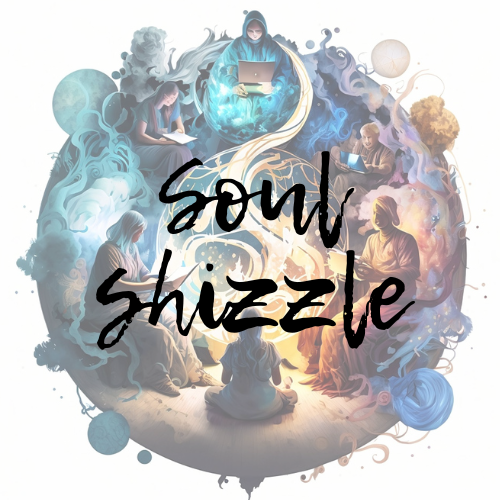The Power of Intuition: Your Inner Guide to Authentic Living
In the quiet moments between thoughts, when the world seems to pause and hold its breath, something profound stirs within us. It’s that gentle whisper that makes you take a different route home, the inexplicable feeling that draws you toward a particular person in a crowded room, or the sudden knowing that guides you toward a life-changing decision. This inner compass, this sacred voice of wisdom, is your intuition – perhaps one of the most undervalued yet powerful gifts we possess as human beings.
What Is Intuition? Understanding Your Inner Wisdom
Intuition represents far more than simple guesswork or wishful thinking. It’s a sophisticated internal guidance system that operates beyond the realm of conscious thought, weaving together threads of experience, knowledge, and innate wisdom into insights that often feel mysteriously accurate. When we talk about intuition, we’re describing that profound sense of knowing that arrives without explanation, that gut feeling that speaks truth even when logic suggests otherwise.
Think of intuition as your personal translator for the language of the soul. While our analytical minds process information step by step, breaking down problems into manageable pieces, our intuitive awareness takes in the whole picture instantaneously. It reads between the lines of life’s experiences, picking up on subtle cues, patterns, and energies that our conscious minds might overlook or dismiss.
This remarkable ability isn’t mystical or supernatural – it’s deeply rooted in our evolutionary heritage. Our ancestors relied heavily on intuition for survival, using it to sense danger, identify trustworthy allies, and navigate uncertain terrain. Today, while our environment has changed dramatically, this ancient wisdom remains as relevant and powerful as ever.
The Science Behind Intuitive Knowing
Modern neuroscience has begun to illuminate the fascinating mechanisms behind intuition. Research reveals that our brains are constantly processing vast amounts of information below the threshold of conscious awareness. This subconscious processing creates what scientists call “thin-slice judgments” – rapid, accurate assessments based on minimal information.
Your intuition operates through a complex network of neural pathways that connect emotional processing centers with higher-order thinking regions. The gut-brain connection, once dismissed as metaphor, is now recognized as a literal communication highway between your enteric nervous system and your brain. This explains why we often describe intuition as a “gut feeling” – because there’s actual biological communication happening in that area of our bodies.
Studies have shown that people who learn to trust their intuition often make better decisions, especially in complex situations where too much analysis can actually hinder optimal choices. This doesn’t mean abandoning rational thinking, but rather learning to integrate both modes of knowing for more comprehensive decision-making.
The Protective Power of Intuitive Awareness
One of the most remarkable aspects of intuition is its role as an early warning system. Your intuitive awareness often picks up on potential problems or dangers long before your conscious mind recognizes them. This protective function of intuition has saved countless lives and prevented immeasurable suffering throughout human history.
Consider those moments when something just feels “off” about a situation, even though everything appears normal on the surface. Your intuition might be detecting subtle inconsistencies in someone’s behavior, recognizing patterns that suggest potential danger, or simply sensing an energy that doesn’t align with safety and well-being. Learning to honor these intuitive warnings can be literally life-saving.
This protective aspect of intuition extends beyond physical safety to emotional and spiritual well-being. Your inner wisdom often guides you away from relationships, situations, or decisions that might cause harm to your authentic self, even when the logical reasons aren’t immediately apparent.

Accessing Your Unconscious Wisdom Treasury
Throughout your life, you’ve accumulated an incredible treasure trove of experiences, observations, and learnings. Much of this wisdom resides in your unconscious mind, available to your intuition but not always accessible to conscious recall. This is why intuitive insights often feel like they come from nowhere – they’re actually arising from this vast internal library of knowledge.
Your intuition serves as the librarian of this unconscious wisdom, instantly retrieving relevant information and presenting it as a feeling, image, or knowing. This process happens so rapidly that it can seem almost magical, but it’s actually the result of sophisticated pattern recognition and cross-referencing that occurs below the level of conscious awareness.
This unconscious wisdom encompasses not just your personal experiences, but also inherited knowledge passed down through generations, cultural understandings absorbed through osmosis, and even what some researchers suggest might be collective human wisdom accessed through morphic fields or quantum consciousness.
Intuition as the Wellspring of Creativity
Artists, inventors, writers, and innovators throughout history have credited their greatest breakthroughs to moments of intuitive insight. Intuition and creativity share a deep connection because both involve moving beyond linear, logical thinking to access more fluid, holistic ways of knowing.
When you’re stuck on a creative problem, your intuition often holds the key to breakthrough solutions. By stepping away from forced thinking and allowing your awareness to soften and expand, you create space for innovative ideas to emerge. This is why inspiration often strikes in relaxed moments – during walks, showers, or just before sleep – when the analytical mind releases its tight grip on problem-solving.
Creative intuition also guides you toward authentic self-expression. It helps you distinguish between ideas that truly resonate with your inner truth and those that merely sound good intellectually. This discrimination is essential for creating work that feels genuine and meaningful, both to yourself and to others who encounter it.
Cultivating Deep Self-Awareness for Intuitive Development
Developing your intuition begins with cultivating a deeper relationship with yourself. This means learning to recognize your own internal signals, understanding how your body communicates intuitive information, and becoming familiar with the unique ways your inner wisdom speaks to you.
Self-awareness practices form the foundation of intuitive development. Regular meditation creates space for subtle inner voices to be heard above the noise of daily mental chatter. Even just five minutes of quiet reflection each day can dramatically improve your ability to receive and recognize intuitive guidance.
Journaling serves as another powerful tool for developing intuition. By regularly writing about your experiences, feelings, and insights, you begin to notice patterns in your inner knowing. You might discover that your intuition communicates through specific body sensations, recurring symbols, or particular emotional tones.
Mindfulness practice – the art of present-moment awareness – also enhances intuitive sensitivity. When you’re fully present, you’re more likely to notice subtle cues and impressions that your intuition uses to communicate. This might include changes in energy when you enter different environments, shifts in feeling when considering various options, or sudden clarity that arises in moments of stillness.
Learning to Trust Your Initial Impulse
One of the greatest challenges in developing intuition is learning to trust those initial, often seemingly irrational impulses that arise within us. Our culture tends to value logical reasoning above all else, which can make it difficult to honor insights that don’t come with rational explanations.
Your first instinct about a situation is often your most accurate, because it’s based on your intuition’s rapid processing of multiple factors simultaneously. The longer you analyze a decision, the more likely you are to second-guess this initial wisdom and convince yourself to ignore what your deeper knowing is telling you.
Building trust in your intuition requires starting small and gradually working up to larger decisions. Begin by honoring your intuitive impulses in low-stakes situations – which route to take home, what to order at a restaurant, or who to call when you think of them. As you see the positive results of following these smaller hunches, you’ll develop confidence in your intuition’s reliability.
Remember that trusting your intuition doesn’t mean abandoning critical thinking. Rather, it means learning to include your inner knowing as valuable data in your decision-making process. Sometimes your intuition will align perfectly with logical analysis; other times it might suggest something that seems to contradict reason but proves to be exactly right.

Integrating Intuition with Rational Decision-Making
The most effective approach to life navigation involves integrating both intuition and rational analysis rather than relying exclusively on either one. Your logical mind excels at processing factual information, weighing pros and cons, and identifying potential consequences. Your intuition provides insight into subtler factors like timing, alignment with your authentic values, and the larger patterns at play in your life.
When facing important decisions, try this integrated approach: First, gather relevant information and consider the logical aspects of your choice. Then, sit quietly and tune into your intuition. Notice what your body tells you about each option. Does one choice create a sense of expansion and energy? Does another feel heavy or constricted? Pay attention to these subtle but important signals.
Sometimes your intuition and logic will point in the same direction, providing clear guidance. Other times they might seem to conflict, requiring you to dig deeper into both sources of wisdom. In cases of conflict, consider whether your logical analysis is based on fear, social expectations, or limiting beliefs rather than authentic reasoning.
The Emotional Intelligence of Intuitive Wisdom
Intuition possesses a sophisticated form of emotional intelligence that helps you navigate the complex world of human relationships and social dynamics. Your intuitive awareness can sense unspoken emotions, recognize hidden motivations, and detect the authentic truth beneath surface presentations.
This emotional dimension of intuition proves especially valuable in relationships. Your inner wisdom can often sense when someone is being genuinely authentic versus when they’re presenting a facade. It can detect compatibility or incompatibility on levels that aren’t immediately obvious to rational analysis.
In professional settings, intuition helps you read group dynamics, sense when to speak up or remain quiet, and navigate office politics with greater skill. It can guide you toward opportunities that align with your authentic path and away from situations that might compromise your integrity or well-being.
Overcoming Obstacles to Intuitive Development
Several common obstacles can interfere with your ability to access and trust your intuition. Recognizing these barriers is the first step toward overcoming them and developing stronger intuitive abilities.
Fear represents one of the most significant blocks to intuition. When you’re anxious or scared, your nervous system shifts into survival mode, making it difficult to access the subtle awareness that intuition requires. Stress hormones literally change your brain chemistry in ways that favor quick, reactive thinking over the more receptive state needed for intuitive insight.
Overthinking also interferes with intuition. When your analytical mind is working overtime, it creates so much mental noise that quieter intuitive signals get drowned out. Learning to calm the chatter of excessive thinking creates space for your inner wisdom to emerge.
Social conditioning that devalues intuition as unreliable or unscientific can create doubt about your inner knowing. Many people have learned to discount their intuitive insights in favor of what others think they should do. Reclaiming trust in your intuition often requires healing these internalized messages about the superiority of purely rational decision-making.
Past experiences where you ignored your intuition and later regretted it can also create blocks. While it’s natural to learn from mistakes, dwelling on times when you didn’t listen to your inner guidance can create a negative feedback loop that makes you less likely to trust your intuition in the future.
Creating Space for Intuitive Insights
Intuition requires space to emerge – physical space, mental space, and emotional space. In our fast-paced, over-stimulated world, creating this space often requires intentional effort and boundary-setting.
Physical space might mean spending time in nature, where the natural environment supports a more receptive state of consciousness. It could involve creating a quiet corner in your home dedicated to reflection and inner listening. Some people find that their intuition speaks most clearly during specific activities like walking, gardening, or creative pursuits.
Mental space involves stepping back from the constant stream of information and decisions that characterize modern life. This might mean taking regular breaks from technology, setting aside time for unfocused thinking, or simply allowing your mind to wander without trying to direct it toward specific outcomes.
Emotional space requires processing and releasing accumulated stress, trauma, or emotional baggage that might be blocking your intuitive receptivity. This could involve therapy, energy healing, creative expression, or simply allowing yourself to feel and release emotions as they arise.
The Ripple Effects of Living Intuitively
When you begin to honor and follow your intuition more consistently, the effects ripple out into every area of your life. Relationships become more authentic as you’re guided toward people who truly resonate with your essence and away from connections that drain or diminish you.
Career decisions become more fulfilling when your intuition guides you toward work that aligns with your deeper purpose and values. You might find yourself drawn to opportunities that seem unlikely on paper but prove to be perfect fits for your unique gifts and aspirations.
Health often improves as your intuition guides you toward lifestyle choices, healing modalities, and self-care practices that support your individual constitution and needs. Your body’s wisdom, accessed through intuition, knows what it needs for optimal well-being.
Financial decisions become more aligned with your authentic values when informed by intuition. You’re less likely to make purchases based on external pressure or ego gratification and more likely to invest in things that truly enhance your life and support your deeper goals.
Embracing Your Intuitive Journey
Developing and trusting your intuition is not a destination but a lifelong journey of deepening relationship with your inner wisdom. Like any relationship, it requires patience, attention, and commitment to flourish.
There will be times when your intuition leads you in directions that seem risky or unconventional. Learning to distinguish between authentic intuitive guidance and fear-based impulses becomes crucial as you navigate these challenges. True intuition generally feels peaceful and expansive, even when it’s guiding you toward significant changes, while fear-based impulses typically feel urgent, constricted, or desperate.
Remember that developing intuition is a skill that improves with practice. The more you honor your inner guidance, the stronger and clearer it becomes. Start where you are, with whatever level of intuitive awareness you currently possess, and trust that your capacity will grow as you continue to nurture this profound gift.
Your intuition is not separate from you – it is you, in your deepest wisdom. It represents the part of you that knows your authentic path, recognizes what will bring fulfillment, and can navigate the complexities of life with grace and wisdom. By learning to listen to and trust this inner guidance, you open yourself to a life of greater authenticity, purpose, and joy.
In a world that often emphasizes external validation and logical analysis above all else, choosing to honor your intuition is a radical act of self-trust. It’s a declaration that your inner knowing matters, that your authentic voice deserves to be heard, and that the wisdom within you is worthy of respect and attention.
As you continue on this journey of intuitive development, remember to be patient and compassionate with yourself. Trust that your intuition is always available to guide you, even when its voice seems quiet or unclear. With time, practice, and commitment, you’ll discover that this inner wisdom is perhaps the most reliable and loving guide you could ever ask for on the beautiful, complex journey of being human.
We may earn a commission for purchases made using our links. Please see our disclosure to learn more.




